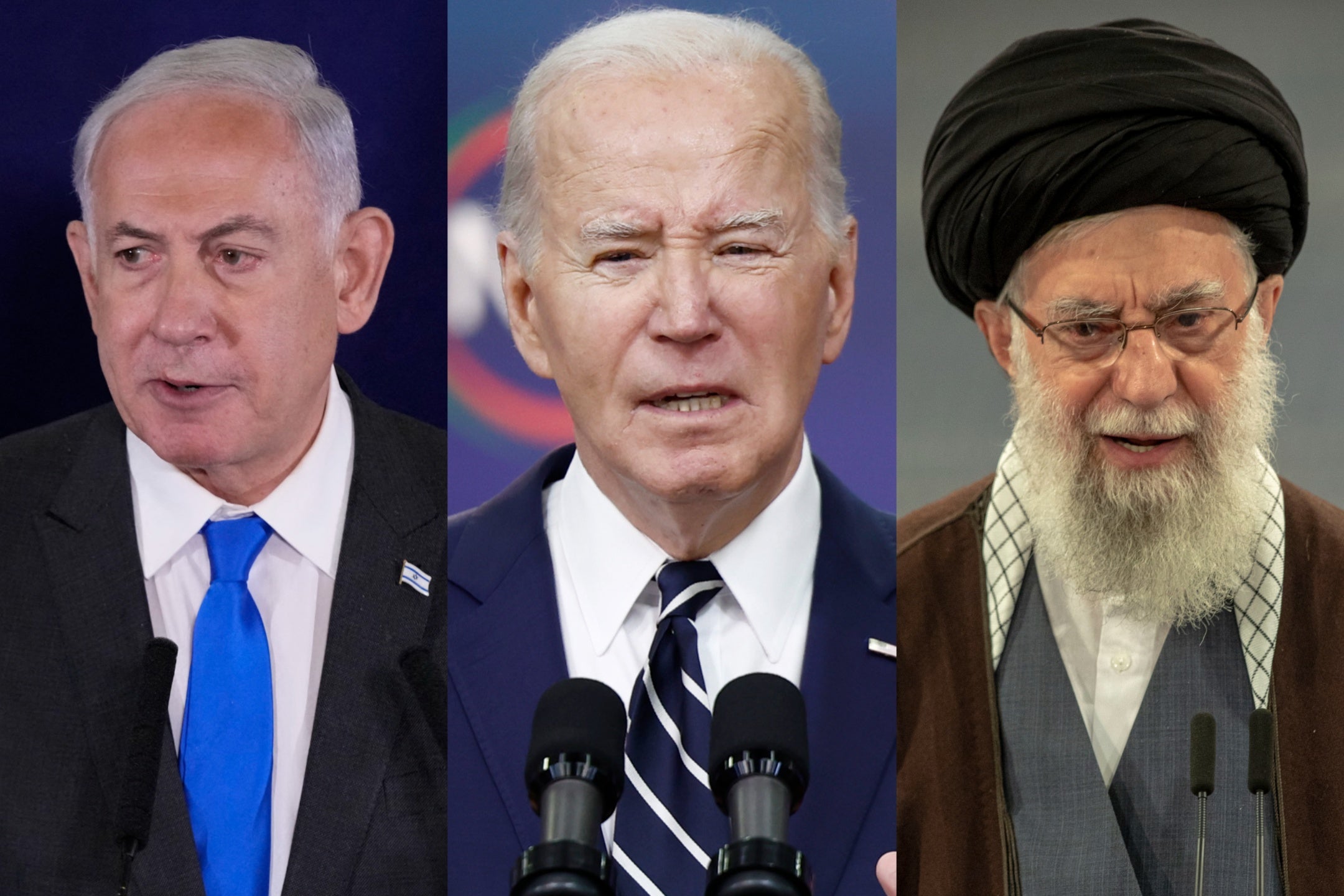Iran’s strikes have changed the conversation on Ukraine and Israel aid in Congress
Boosting the military capacities of Ukraine and Israel was already controversial. It just got a lot more difficult

On Monday, both Democrats and Republicans gathered to condemn the weekend’s new development in the Middle East: a sizable drone and missile attack launched by Iran against Israeli targets.
Saturday’s attack by Iran refreshed the importance of the geopolitical consequences of Israel’s war in Gaza for Washington and led to a flurry of activity in the lower chamber, where Republican leaders have teed up a series of bills and resolutions in response. The first pieces of legislation are set to pass the chamber Monday evening. They deal with a range of issues, including directing US representatives at both the IMF and World Bank to oppose financial assistance to Iran and tightening sanctions against Chinese firms known to do business with Iran’s energy sector.
But the real question for the lower chamber is what change this new development has on the calculus around the supplemental aid package meant to bolster the militaries of both Israel and Ukraine. It has languished in the House for weeks as Speaker Mike Johnson has refused to allow a floor vote. Instead, his party has waffled back and forth, at one time demanding that border security be addressed first (it wasn’t) and now moving onto his latest effort to appease the far right: separating the aid packages into two bills.
The White House called Speaker Johnson’s bluff again on Monday, and sent a clear message to Democrats in the House to oppose a standalone Israel bill.
Ukraine’s military is increasingly desperate for more weapons and ammunition while it battles Russia’s invasion. Supporters of the country against its Russian aggressors originally pressed for the two aid packages to be linked in order to ensure their passage — since hardline conservatives, in particular, have increasingly opposed arming Ukraine. In the House, Speaker Johnson continues to face Marjorie Taylor Greene’s motion to vacate hanging over his head; the right-wing Georgian has threatened to call a vote to oust him if Ukraine aid passes.
Republicans may be hoping that a spate of messaging bills standing in support of Israel and pressuring the White House to respond to the Iranian attack will force Democrats to back down and accept quick passage of a standalone Israel aid package. The president and his allies, meanwhile, continue to hammer the House GOP over its inaction, and so far the left has not suffered any defections. The ball mostly remains in the speaker’s court. Mr Johnson still faces a political disadvantage, given that the combined aid bill has already passed the Senate, where Republican leader Mitch McConnell has urged him to pass it.
Much of the political world’s attention remained split on Monday, thanks to a historic occurrence in New York: the beginning of Donald Trump’s hush money trial and the first felony court proceedings against a US president in history. Jury selection began at 10am in the Manhattan courthouse.
The Senate, meanwhile, is set to vote this week on the reauthorisation of FISA, America’s foreign surveillance program, after it passed the House on Friday; legal authorisation for the program is set to lapse on Friday. After a rebellion by conservatives on a rule vote last week and a bitter dispute over whether the bill should be reformed with a warrant requirement for the data of American citizens, Mr Johnson cut a deal and shortened the reauthorisation period to two years. That allows it to be re-examined under a potential second Trump presidency.
Meanwhile, Mr Trump returns to that Manhattan courtroom — where he was reported by some to have visibly fallen asleep during Monday’s proceedings.
Bookmark popover
Removed from bookmarks